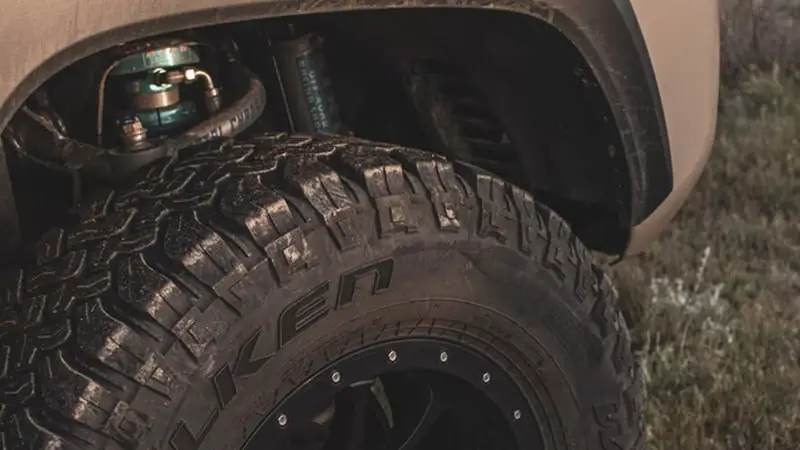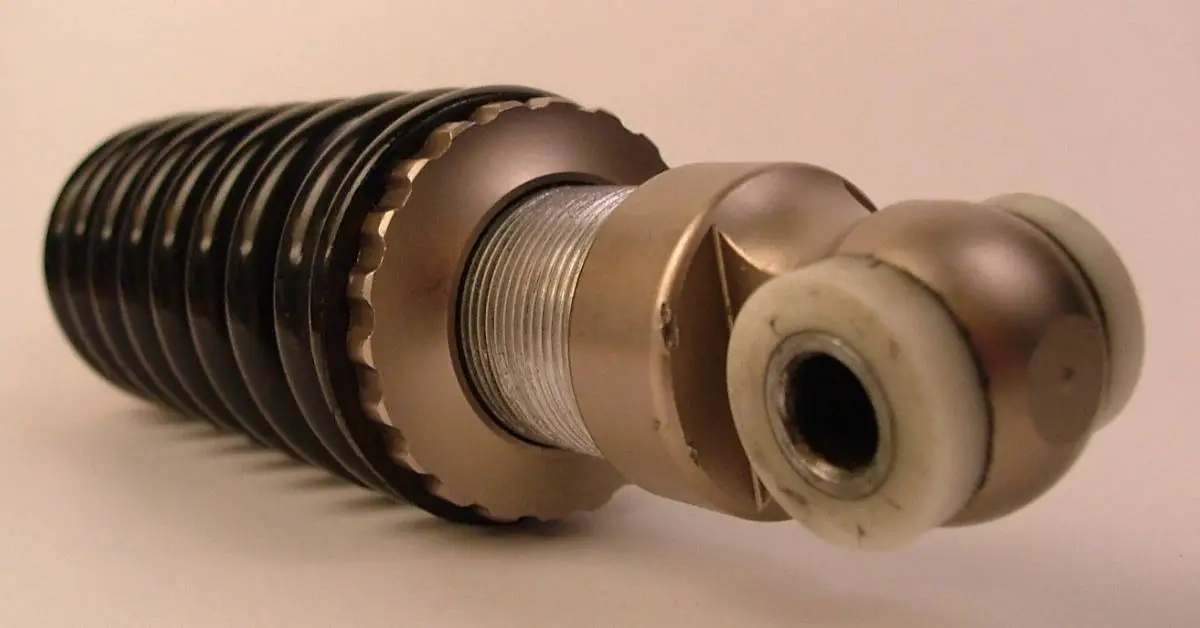Shocks keep you from hitting the roof of your car when you encounter a bump on the road. Technological advancement and the desire for better-performing cars have led to the development of various shocks, including oil and gas shocks. Of the two, which one is better?
Your preference dictates the better shock absorber. If you prefer a “sportier” drive or you frequent rough terrains, then a gas shock absorber is better for your car. A regular car that doesn’t drive on off-roads will do better with an oil shock absorber.
In this article, I will explore the advantages of gas-charged shocks. I will also compare the differences between oil shocks and gas shocks. In conclusion, I will mention the shocks that give the smoothest ride.
What Is the Advantage of Gas-charged Shocks?

Shock absorbers (shocks or dampers) stabilize and control the movement of your car when you brake, turn, or drive on uneven roads. Together with steel springs, they make up the primary components of a car’s suspension system.
They protect the cabin of your car from the impact/force received when your car encounters potholes and bumps on the road. Without the shocks to absorb the brunt of the impact and the springs to dissipate it, your car will bounce up and down the road. Braking will also result in a nosedive.
Although all shocks provide this function, their manner of operation differs. Gas shocks maintain the pressure on the oil in them by using compressed gas. Yes, gas shock absorbers also have oil, just like oil shocks.
The gas used in these shock absorbers is gaseous nitrogen. It replaces the air used in oil shock absorbers. This gas stops the oil from foaming, and there is no bubble formation. When bubbles form, they enter the piston valve, resulting in a decreased effectiveness and performance of the shocks.
Another plus to gas shock absorbers is that they cool faster by dissipating the heat generated by absorbing and converting the shocks received from bumps and potholes. They can be installed vertically, at an angle, or horizontally, with no detrimental effect on their operation.
They are ideal for bumpy/rough terrains and long distances. If you like sports cars or you drive heavily loaded cars, then a gas shock absorber is your best fit.
Are Oil Shocks Better than Gas Shocks?
As earlier stated, there isn’t a single shock absorber that is perfect for everybody. The type of car you drive, how you like your suspension (stiff or soft), your driving skills, and the environment you usually drive in factor into the shock absorber that is best for you.
A good comparison of the advantages and disadvantages of both will help you decide on the best fit.
Advantages of Oil Shock Absorbers
- They give a smoother, more comfortable, and softer ride.
- Oil shock absorbers are available everywhere in the market, and it’s easy to find one for the make and model of your car.
- They are cheaper to buy and maintain
- Their design is simple.
- These shocks can drive up to 60,000km before you need to change them.
- They are very durable.
- They suit short distances and urban roads.
Disadvantages of Oil Shock Absorbers
- You cannot use them for long distances.
- They overheat easily.
- They are unsuitable for rough terrains and off-road driving.
- Oil shocks do not support driving at high speeds.
- They work in one direction
Advantages of Gas Shock Absorbers
- They are great for high-speed driving.
- Gas shocks have a good ‘holding’ on all roads.
- Heavy-duty cars work best with gas shocks.
- The suspension works in two directions; compression and decompression.
- There is no risk of overheating because the gas cools the oil and prevents it from boiling over.
Disadvantages of Gas Shock Absorbers
- They are expensive.
- The suspension is stiffer, and it makes for a slightly uncomfortable ride.
- Gas shocks have a complex design.
- Few car models can find a suitable gas shock absorber to replace their oil shock absorber.
- The rigidity of this shock absorber causes other components of the suspension to wear out faster.
Settle for a shock absorber that you can use for a long time and enjoy as you do so.
Which Shocks Give the Smoothest Ride?

The chief function of a shock absorber is to give you a smooth ride despite the bumps and irregularities your car encounters on the road. Remember that getting the best out of your shock depends on you having the best fit for your car style and terrain.
Here are some of the best shock absorbers that guarantee a smooth ride:
- The Blistein 5100 series – the exterior is made from zinc, and it is easy to install. It also comes with a lifetime warranty.
- Monroe shock absorbers – they come with an all-weather fluid that minimises all friction. They also have an owner’s manual that makes it ideal for a DIY stint.
- Rancho shock absorbers – with these shocks, you can lift your car up to 3.5 inches higher. They also come with a lifetime warranty.
- Detroit Axle 80370-6 – it is an all-in-one set that is easy to install, and you get good quality for the price paid.
- KYB 565104 MonoMax Gas Shock – it is the lightest at 5.5 pounds. It has a great grip on the road and is sturdy. You get a smoother feel for making corners and turning.
- ACDelco 530-301 – twin-tubed gas shocks that are ideal for all roads.
Shocks can last for 70,000 to 95,000 miles with normal use. You shorten their lifespans and effectiveness by carrying heavy loads and driving on unpaved or rough roads. A lot of vehicles have struts instead of shock absorbers.
Their functions are the same, with one major difference. While struts are singular components, struts are a combination of a shock absorber and a steel coil. With a proper check, you will know what your car comes with in case you have to change it.
Any slight malfunction in your shock absorber will lead to excessively jerky movements of your car, making it difficult to drive. Replacing a shock absorber is relatively cheap, and you should not put it off for any length of time.

